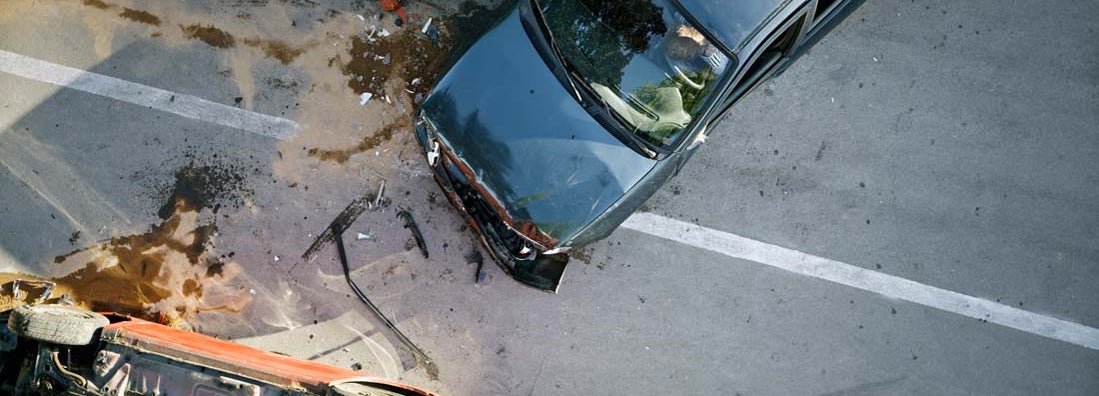Is Property Damage Necessary on All Insurance Policies?

You may have heard about someone driving around without car insurance, but is it legal? More specifically is driving around without property coverage on your auto insurance illegal? We'll tell you, and we'll tell you if you're covered.
When it comes to finding car insurance, an independent insurance agent can help you understand the risks involved with driving without certain insurance policies. They'll help you find the right protection when you need it.
Is It Legal to Drive without Property Coverage on Your Car?
It depends on the type of property coverage. There are two types of property coverage for your car, property liability coverage and personal property coverage, also known as collision coverage.
- Property liability coverage: Property liability coverage protects you in the event that you or someone authorized to drive your vehicle causes damage to someone else's property. In 2017, more than two million drivers were involved in accidents that included property damage. It's estimated that the average cost of a property-related car crash is $9,300. If you don't have property coverage, then you'll be paying that bill out of pocket. However, it will not pay for damage to your own property, aka, your car.
- Collision coverage: Collision coverage pays for damage done to your car from anything that you might collide with, including another vehicle, a pole, rock, animal, etc.
While it is not illegal to drive your car without collision coverage, it is illegal to drive without liability insurance which often includes property liability coverage.
What about Liability Coverage? Is That Required?
Yes, every state has a minimum of liability coverage that is legally required. If you don’t have it, you could be fined. If you make a habit of getting caught without it, you could end up in jail. The good news is that your liability coverage will also include property damage and bodily injury liability.
- Property damage liability: If you cause an accident that damages or destroys another person's car or truck, your liability insurance would pay for the repairs to the other driver’s vehicle, up to your property damage limit. Likewise, if you run into a building or drive into a hedge, your property damage liability coverage will cover the costs of replacing or repairing the damaged items.
- Bodily injury liability: If you cause an accident that harms another person, your liability coverage would pay for “pain and suffering” claims, medical expenses including hospitalization and surgery, and even lost wages for the injured parties, up to your policy limits. Bodily injury liability typically has two limits: one for each person injured, and one for the total injury costs of the accident.
Liability insurance also helps to cover the costs of lawsuits arising from an accident. For example, if an injured driver or passenger files a lawsuit against you, your liability insurance would help to pay for your legal defense. Note that you will likely need legal defense in court whether or not you are found at fault for the damages.
How Do I Know My State’s Requirements on Car Insurance?
Every state has a minimum requirement on liability and property liability insurance. Your independent agent can help you determine your state's minimum requirements and assure that your insurance policy meets that minimum. You can expect your property liability coverage to range from $5,000 to $25,000 and $10,000 to $50,000 for bodily injury liability.
What's the Value in Comprehensive Auto Coverage?
Liability insurance protects you against an accident when you're at fault, and collision protects you if you run into an object, comprehensive auto coverage covers everything else that can happen to your car: fire, wild animal collisions, riots, and even missiles. It’s more accurately called “other than collision.” Comprehensive auto insurance is not required, but we recommend talking to your independent insurance agent to see if it's worth adding to your policy.
What Happens if I Don’t Have Property Coverage and I Get into an Accident?
The repercussions of driving without insurance don't usually end well. If you don't have property coverage and you're in an accident with another vehicle and found to be at fault, you would be personally responsible for the damage to your vehicle and the person that you hit. Even if you weren't involved in an accident with another vehicle, you'd have to pay for any repairs to your own vehicle out of pocket. Even worse, you could be fined, lose your license, or even go to jail if you're driving without the minimum required property coverage.
When Do I Need Uninsured/Underinsured Coverage?
Uninsured/underinsured coverage is designed to protect you should you be in an accident with someone without proper insurance. As of December 2019, 13% of drivers didn't have insurance. There's a slight difference in the two coverages to be aware of:
- Uninsured motorist coverage: This is for when the other driver doesn’t have any coverage at the time of an accident.
- Underinsured motorist coverage: This is for when the other driver has insurance but doesn’t have enough coverage to pay for all expenses of the accident.
This coverage is not required in every state, but if you're in an accident with someone who doesn't have proper insurance and you don't have this coverage, you'll be responsible for the repairs to your vehicle on your own. The states that do require uninsured/underinsured motorist coverage include Connecticut, District of Columbia, Illinois, Kansas, Maine, Maryland, Massachusetts, Minnesota, Missouri, Nebraska, New Hampshire, New Jersey, New York, North Carolina, North Dakota, Oregon, South Carolina, South Dakota, Vermont, Virginia, West Virginia, and Wisconsin.
What about Extra Endorsements? Anything I Should Consider?
Endorsements allow you to customize your insurance package by adding extra coverage you might need. Depending on your situation, there are endorsements that you could benefit from adding to your insurance including:
- Coverage for modified vehicles if you're adding custom parts and equipment to your car
- Classic car coverage
- Rental car coverage
- Flood damage coverage
- Hail damage coverage
- Recreational vehicle coverage
- Pet coverage
These are just a few common endorsement options. You can work with your independent insurance agent to discuss your needs and any endorsements that might fit your situation.
Here’s How an Independent Insurance Agent Would Help
When it comes to making sure you have the right car insurance, an independent insurance agent is the best resource to work with. They search through multiple carriers to find providers who specialize in this type of insurance, deliver quotes from a number of different sources, and help you walk through the quotes to find the best blend of coverage and cost.
